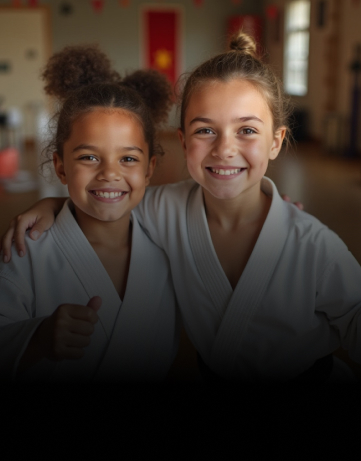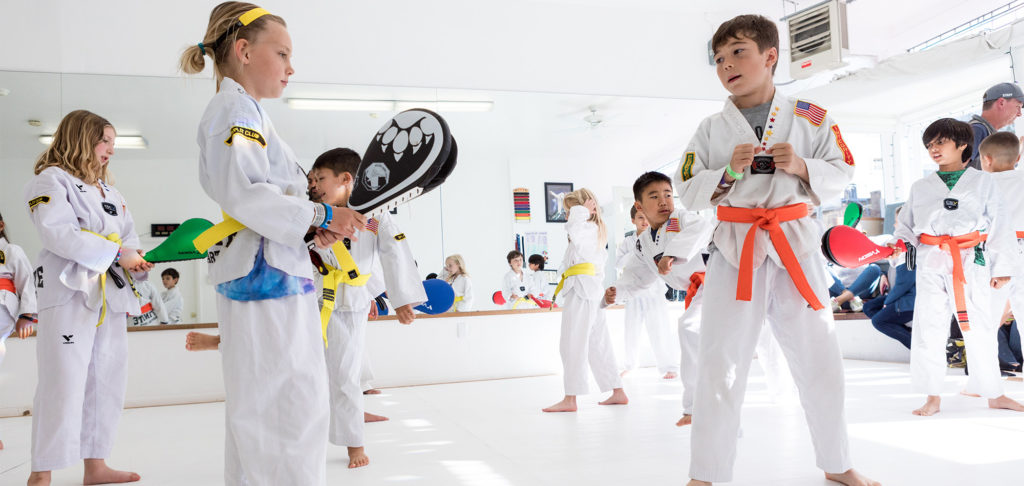Best Martial Arts for Families – Quality Time and Growth Together
Just How Karate for Children Can Increase Confidence and Discipline in Young Martial Artists
Karate for kids provides an unique opportunity to build confidence and discipline in young martial artists. As they find out new methods and face obstacles, they not just get abilities however likewise establish a strong sense of self-respect. This structured atmosphere encourages them to value the journey of improvement. However how does this training translate right into their everyday lives? Discover the deeper connections that make karate greater than just a sport.
The Importance of Self-confidence in Childhood Advancement
Confidence is a vital building block in childhood years advancement. When you nurture your kid's self-esteem, you empower them to face difficulties, take threats, and reveal themselves openly. Kids with confidence are extra ready to check out new activities and social situations, which can bring about long-term friendships and beneficial experiences.Encouraging your kid to get out of their convenience zone cultivates resilience. They learn that failing isn't completion however rather a stepping stone to success. By commemorating their achievements, despite exactly how small, you assist them identify their abilities and worth.In this trip, support and favorable support from you play an important duty. Whether it's via praise or merely existing, your involvement enhances their confidence. As they grow, this confidence becomes a lifelong asset, furnishing them to browse both obstacles and opportunities with a strong feeling of self.
Exactly How Martial Arts Shows Self-control and Focus
Karate aids you build self-control and emphasis via its organized training regimen. As you practice mindfulness throughout each session, you'll find out to focus better both on and off the floor covering. Plus, establishing and attaining goals in martial arts strengthens your capacity to remain alert and dedicated.
Structured Training Program
While you take part in karate training, you'll quickly uncover how an organized routine infuses self-control and focus in young practitioners. Each class complies with a specific style, including warm-ups, method method, and sparring. This uniformity shows you to appreciate the process and commit to improvement. As you discover strategies and forms, you create a sense of responsibility for your own progress.The organized setting encourages you to set objectives, whether grasping a brand-new belt or perfecting a kata. You'll find that remaining focused during drills and classes develops your focus. The discipline you grow in martial arts extends beyond the dojo, favorably affecting your schoolwork and day-to-day regimens. Each session reinforces the importance of commitment, helping you expand right into a much more self-displined individual.
Mindfulness in Practice
As you practice martial arts, you'll discover that mindfulness ends up being a crucial part of your training. Each action requires your complete attention, aiding you stay concentrated on the present moment. You'll discover to ignore diversions and concentrate on your breathing, movements, and intentions. This heightened awareness hones your reflexes and boosts your discipline.During sparring or kinds, you'll discover the relevance of being mentally existing - Karate Salisbury MD. You'll discover how this focus not only boosts your technique however additionally develops your self-confidence. By practicing mindfulness in martial arts, you grow persistence and strength, essential attributes that extend beyond the dojo. This way, karate instructs you to harness your mind, assisting you develop a regimented approach to difficulties both on and off the mat

Personal Goal Setting Techniques
Setting objectives in martial arts isn't almost earning belts; it's a powerful method to cultivate self-control and emphasis. When you establish details, achievable targets, you develop a roadmap for your development. Instead of just aiming to boost your kicks, attempt concentrating on grasping a certain technique each month. This method maintains you motivated and engaged.Breaking down bigger goals into smaller, manageable steps aids you track your progress and commemorate small success in the process. Whether it's perfecting your stance or increasing your sparring endurance, every goal strengthens your commitment. As you attain these goals, you'll develop self-confidence in your abilities and establish a solid sense of technique that prolongs past the dojo right into everyday life.
Structure Durability With Martial Arts
Martial arts, specifically karate, uses youngsters a distinct possibility to develop durability in a supportive atmosphere. In courses, they encounter difficulties that press their limitations, whether it's grasping a brand-new strategy or sparring with a partner. Each setback, like a missed out on kick or a lost suit, ends up being a chance to discover and grow.As they exercise, kids discover to welcome discomfort and maintain attempting, even when points obtain hard. They find that failure isn't the end; it becomes part of the trip. This state of mind helps them recuperate more powerful, not simply in the dojo, but in day-to-day life.With each obstacle they conquer, your child constructs confidence in their capability to deal with challenges, fueling their resolution. Through karate, they'll comprehend that strength isn't simply regarding physical stamina; it's concerning psychological grit and willpower, empowering them to face whatever life throws their method.
The Role of Respect in Martial Arts Training
Regard is a foundational principle in karate training, fostering a society of discipline and sociability among pupils. When you tip onto the dojo floor, you're not simply learning strategies; you're additionally finding out to appreciate your teachers, peers, and the art itself (Karate Salisbury MD). Bowing at the beginning and end of course isn't simply a formality; it represents your recommendation of others' dedication.as and efforts you develop common regard, you'll discover it improves your understanding experience. You'll listen a lot more attentively to your instructor and gain understandings from fellow trainees. This environment urges constructive criticism and support, enabling everyone to expand together.Moreover, regard cultivates self-control. Recognizing the value of effort and humility helps you stay concentrated on your training. In turn, this respect converts right into your everyday life, boosting your interactions and connections outside the dojo. Via martial arts, you learn that regard is vital for personal growth and community building
Attaining and setting goals Success in Karate

Social Skills and Synergy in the Dojo
While training in the dojo, children normally establish crucial social abilities and synergy capabilities. As they exercise along with peers, they discover to interact properly, share area, and support each other. Each class offers chances for collaboration, whether it's throughout partner drills or team exercises. This teamwork fosters friendships and produces a sense of belonging, making the dojo a nurturing environment.Kids additionally obtain valuable conflict resolution skills. When they experience difficulties, such as arguments throughout sparring, they find out to browse these situations constructively. They practice perseverance and compassion, understanding that everybody has various toughness and weaknesses.Moreover, taking part in team tasks cultivates a sense of accountability. You'll see your child finding out to count on colleagues and take responsibility for their role in a team. These experiences not just boost their martial arts journey yet likewise outfit them with social devices they'll carry into various other areas of life.
The Long-Term Benefits of Karate Beyond Childhood Years
As kids expand up and change right into their adult years, the advantages of martial arts expand far past the dojo. You'll locate that the self-control and emphasis discovered via martial arts can convert right into your academic and expert life. Establishing and attaining goals in fighting styles fosters a strong work principles, which can push you to succeed in any endeavor.Moreover, the self-confidence acquired from understanding techniques and sparring can improve your self-esteem, assisting you tackle difficulties head-on. This strength comes to be vital as you deal with the unpredictabilities of adulthood.Additionally, the social abilities stanford basketball established with team effort and sociability in the dojo can result in far better relationships in both specialist and individual spheres. You'll discover to interact effectively, willpower conflicts, and construct an encouraging network.Ultimately, karate shapes not simply experienced martial artists, yet all-around people ready to tackle the globe.
Regularly Asked Concerns
What Age Is Finest to Beginning Martial Arts for Children?
You can begin karate as early as age 4 or 5, but it usually relies on your youngster's maturation and passion. Discovering a class that suits their age and power level makes a huge distinction.
Exist Any Type Of Health And Wellness Advantages From Exercising Martial Arts?
Yes, practicing karate deals many health benefits. You'll enhance your adaptability, sychronisation, and toughness while boosting cardio health and fitness. Plus, it enhances emphasis and psychological well-being, making it an amazing choice for overall physical and mental wellness.
Just How Often Should Children Go To Karate Courses?
You ought to urge your kids to participate in karate classes at least 2 to 3 times a week. Uniformity helps them find out strategies successfully and create skills, making their experience extra gratifying and satisfying in the long run.
Can Karate Aid With Managing Anxiety in Children?
Yes, karate can assist take care of anxiousness in children. It educates focus and self-constraint while supplying a safe electrical outlet for power. You'll see your youngster growing extra confident and calm as they exercise consistently.
What Gear Is Required for Kids Starting Karate?
